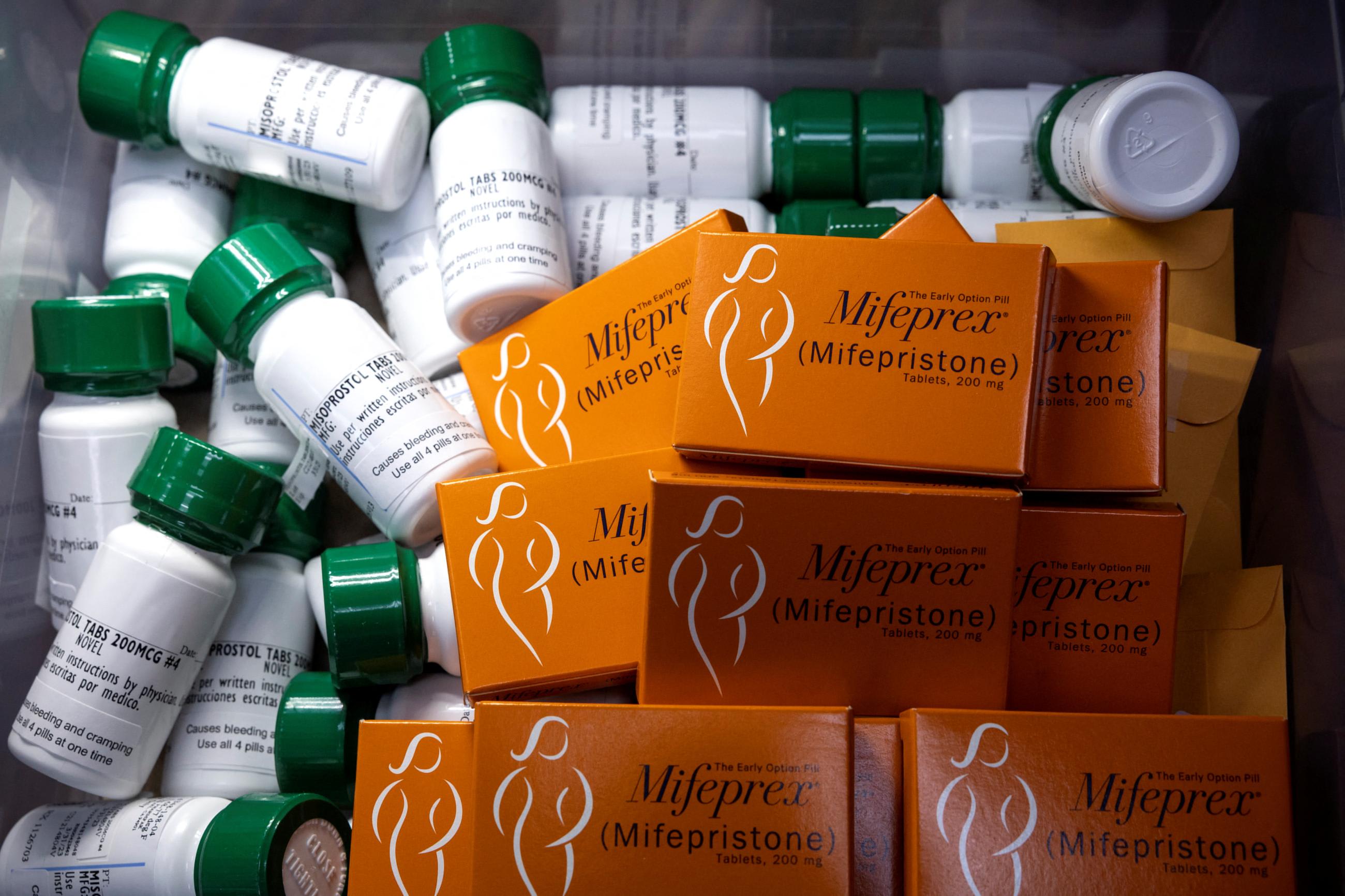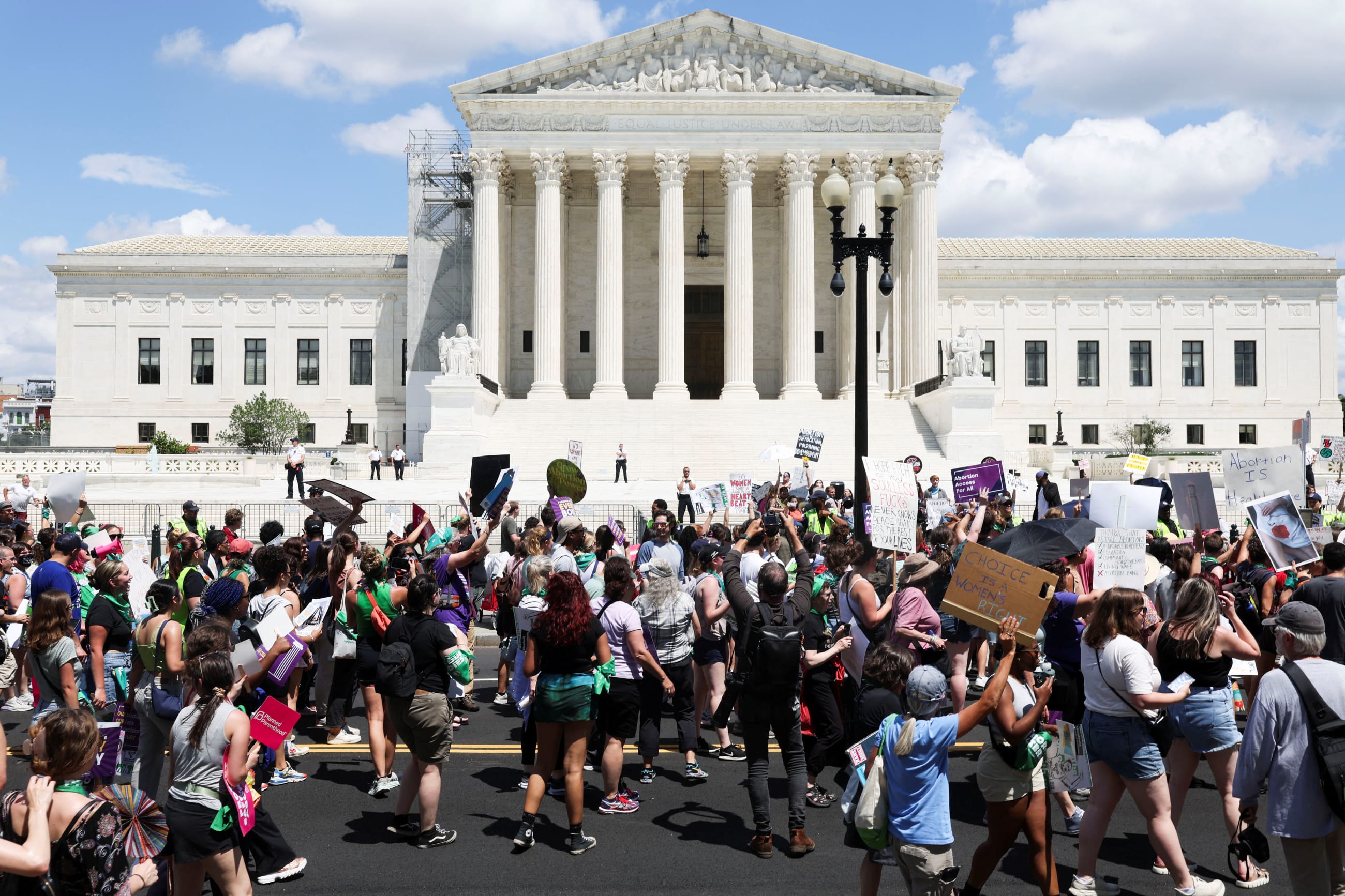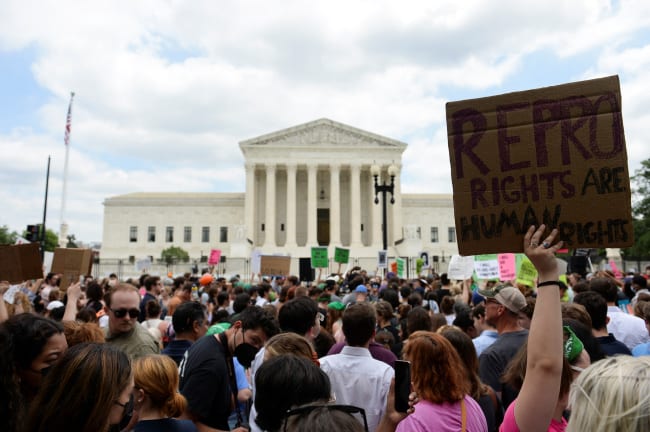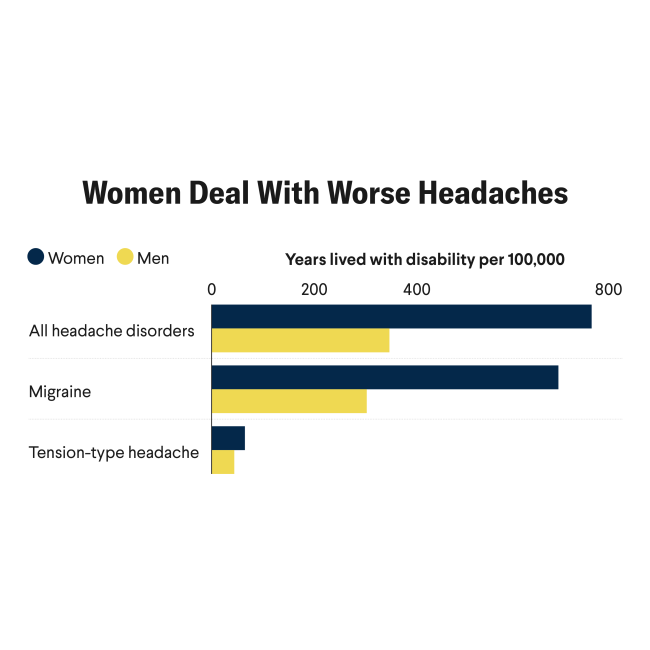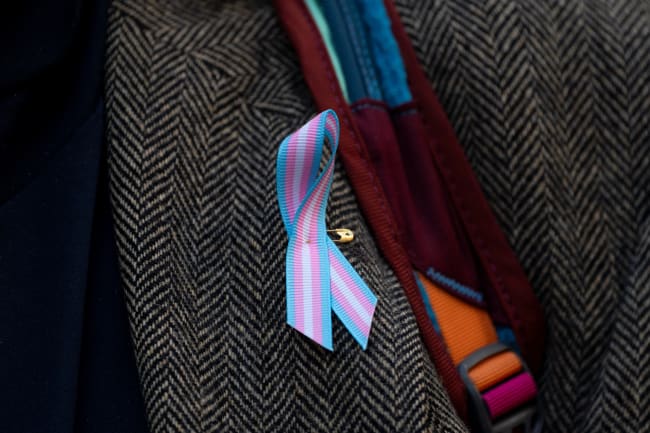After the Supreme Court overturned Roe v. Wade (Roe) in 2022, its dissenting justices noted that the United States had become an outlier in a world trending toward liberalization of abortion laws. The ruling, Dobbs v. Jackson Women's Health Organization (Dobbs), removed federal abortion protections, eroding nearly 50 years of legal precedent enshrining the right to this reproductive health-care option. But as a country that has been long considered a leader in global health, shockwaves from the court's decision rippled far beyond the United States. It has inspired anti-abortion policy and new stigma against women in some places but also motivated others toward reinforcing protections for reproductive health.
A Global Health Standard, Under Question
With Dobbs, the United States joined El Salvador, Nicaragua, and Poland as the only nations to move away from abortion rights in recent decades. The United Nations has stipulated that states "should not introduce new barriers and should remove existing barriers that deny effective access by women and girls to safe and legal abortion." Just three months before Dobbs, the World Health Organization released a guideline that affirmed abortion as an essential health service—one integral to meeting UN Sustainable Development Goals for health and human rights.
The global outlook had been tipping toward abortion rights for nearly 30 years. Within that time, more than 60 countries, such as Chile, Ireland, and Zambia, had pushed the needle for protection, expanding grounds for abortion and other reproductive health measures.
But Roe's repeal has since changed the discourse. "One glaring omission in the Dobbs decision is any consideration of international human rights," medical anthropologist Lynn M. Morgan wrote for Current History. Indeed, although the ruling has official jurisdiction only inside U.S. borders, its erasure has sparked a wave of human rights policy changes worldwide.
One glaring omission in the Dobbs decision is any consideration of international human rights
Dobbs has become immortalized in various countries' governing decisions. Rights group Fòs Feminista reported that in Nigeria the Lagos state governor revoked guidelines on terminating pregnancy in the days after the U.S. Supreme Court's ruling, facing pressure from opposition citing Dobbs as justification. In Kenya, a court cited Roe as grounds for a law protecting the right to abortion in May 2022, a month before Dobbs. Shortly after the U.S. ruling, the Kenyan Court of Appeals halted the rule when opponents argued that Roe had subsequently been established as "bad law." In India, Dobbs was raised in April 2023 before its Supreme Court to argue for parliamentary power on decisions regarding citizens' rights.
These cases are not anomalies: Dobbs has become the bellwether for even more countries to tear down their abortion policies.
U.S. Federal Ruling Breeds Global Stigma
The U.S. political divisiveness within its courts has soft power influence in legislative and judicial arenas worldwide, extending a devastating effect across hospitals and social settings. Roe was a harbinger of progressive law when it came into force in 1973, inspiring many countries to encompass abortion as a human right in the decades that followed. Like Roe, Dobbs has served as the guidepost for governments and anti-abortion advocates, giving them a green light not only to reverse health-care gains but to also nurture the accompanying stigma of abortion-related services.
Last spring, gynecologists in Italy were harassed for offering abortion options. In Rwanda, women are battling stigma after facing time in prison for abortion-related convictions. Women as far separated as Canada, Indonesia, and Poland have said they cannot trust or are heavily shamed by their doctors. Eroding access to care while ramping up shame and discrimination places already strained progress on goals for gender equality, universal standards of good health, and human rights outlined by the United Nations further from grasp.
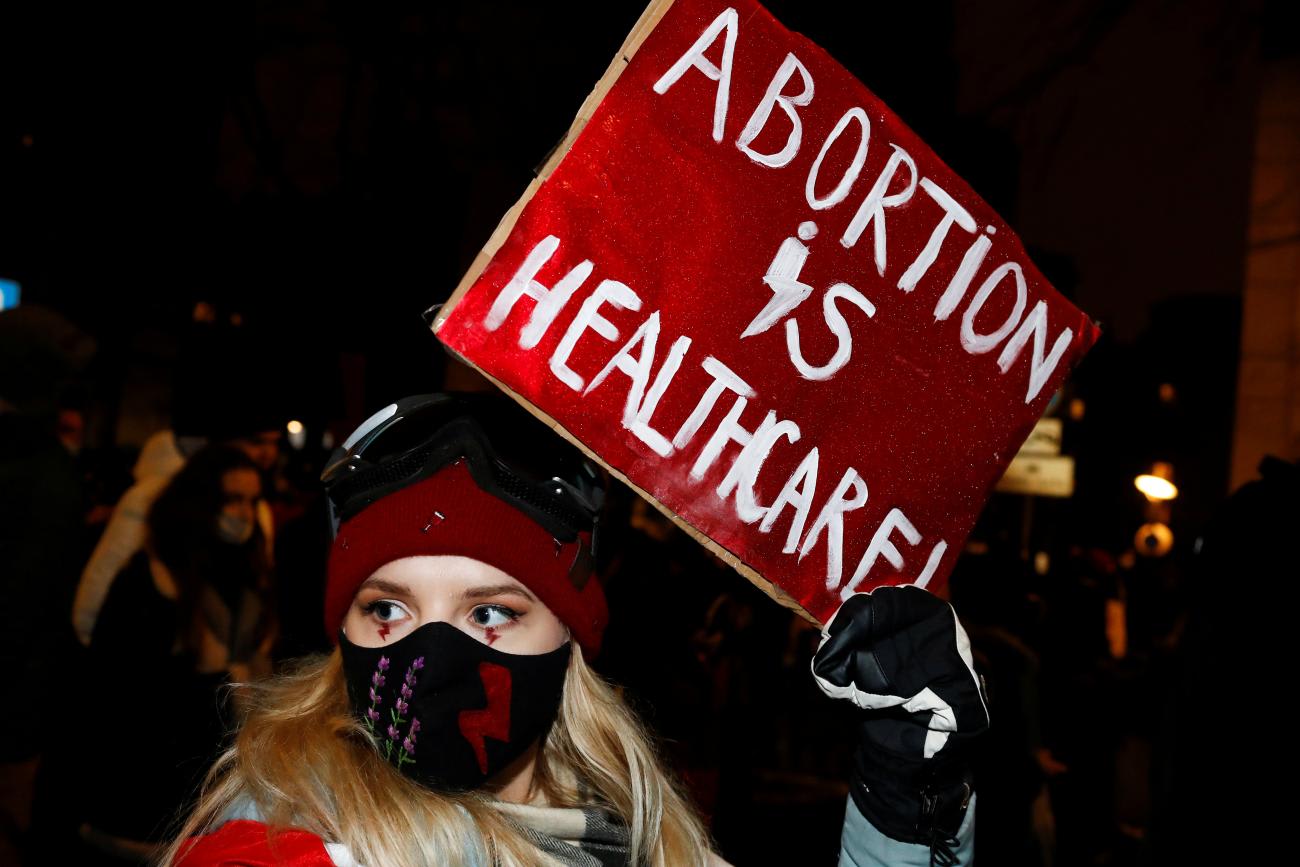
In addition to the direct health impacts of quality abortion care, a world without abortion stigma would have a number of health, social, and financial benefits to women, such as transparent health-care information, and affordable, ethical health care. For such a world to exist, the United Nations wrote in 2021, abortion "must be taken out of the realm of politics."
The "excessive politicization" of women's health rights demonstrated in one country, such as the United States, can have a domino effect in others—especially when that country is revered as a leader on the global health stage and massive health aid lender, and even more so when this aid is often conditioned on progressive reforms or under threat of sanctions for revoking citizens' rights. In the abortion sphere at home and overseas, the U.S. rules seem not to apply.
Targets of Revived Anti-abortion Confidence
The U.S. anti-abortion restriction movement has infiltrated the policy sphere deeper than mentions of Roe's fall in legal proceedings. Policymakers around the world have anticipatorily self-censored legislation over fears that the Helm Amendment—legislation that refuses U.S. aid to foreign organizations said to be using the funds to support abortion services—would be resurrected.
The President's Emergency Plan for AIDS Relief (PEPFAR) was another to fall with Roe. Renewed three times over twenty years for its work on HIV/AIDS, PEPFAR was considered by many on both sides of the aisle to be one of the most successful health programs in history. A 2023 deadline sunset the program after a conservative coalition claimed PEPFAR was supporting abortions, shaking congressional confidence in it and ending an initiative that saved 25 million lives, many in sub-Saharan Africa.
As countries from all regions battle the challenges that come with this harsh abortion front, the brunt of the Dobbs aftermath has reared in Africa, particularly as U.S. groups emboldened by the Supreme Court's decision have upped pressure abroad. One is Family Watch International, an organization that the Southern Poverty Law Center has labeled a hate group for its efforts lobbying more than 20 African countries to crack down on abortion and LGBTQ+ rights.
The U.S. anti-abortion restriction movement has infiltrated the policy sphere deeper than mentions of Roe's fall in legal proceedings
Family Watch's perhaps most prominent effort is unfolding in Ethiopia. Africa's second most populous country passed a bill in 2005 to enable abortion in several scenarios, a monumental policy shift that has brought mortality from unsafe abortion down from approximately 35 percent of all maternal deaths before the law's enactment, to only 1 percent today. Family Watch is stoking anti-abortion sentiments to dismantle the law. Thousands of Ethiopians marched last July to oppose abortion.
"Before the decision, they were not boldly coming out in the media and talking about abortion. But now…they are very vocal, very organized, and boldly speaking out about abortion in Ethiopia," Demeke Desta, Ethiopia program director at the global reproductive health nonprofit Ipas, told Coda Story.
Experts are wary that another bill proposed in 2021 in the East African community to protect sexual and reproductive health could be battered down amid the anti-abortion push, affecting Burundi, Congo, Kenya, Rwanda, South Sudan, Tanzania, and Uganda. The bill works to address the health disparities for women and girls in a variety of ways, but its abortion provision is facing mounting opposition, with aims to block abortion rights, even in the case of rape, incest, or sexual assault.
Maternal health in sub-Saharan Africa is already the most drastic of any region, according to the Guttmacher Institute. An estimated 77 percent of all abortions in sub-Saharan Africa are unsafe, and African civil society workers worry that number will rise as hospitals increasingly close their doors to women in need of abortions. Unsafe abortions already make up 16 percent of all maternal deaths in the region, home to 70 percent of all maternal mortality cases worldwide.
Defying the Trend
Just as Dobbs invoked an anti-abortion movement in politics worldwide, some countries took it as a warning to further cement laws protecting womens' health rights.
France moved to put the right to abortion in its constitution directly after Dobbs struck Roe down, and President Emmanuel Macron has declared that this year, "the right of women to choose abortion will become irreversible." The European Parliament condemned the U.S. decision as well, adopting a resolution that stated regressions on abortion policies counter human rights, further affirming the United States' isolation among its allies on the issue.
Latin America has experienced what is referred to as a green wave of abortion rights, sparked when Argentine activists waved green handkerchiefs during 2018 demonstrations. Argentina and Colombia recently decriminalized abortion, and Mexico was the most recent country to take this policy perspective in late 2023. Americans are even traveling to Mexico to access safe abortion care now that it is out of reach within their own borders. Many Latin American governments have remained secure in their policies in the face of Dobbs; experts note that they can serve as inspiration to U.S. abortion activists who need to regain ground.

Some African countries are also choosing to preserve policies against the grain of Dobbs. Within days of Washington's repeal, Sierra Leone President Julius Maada Bio announced that his country would protect abortions in a period when "sexual and reproductive health rights for women are being either overturned or threatened." Benin also expanded access in the months after Dobbs, adopting one of the most progressive policies on the continent after lawmakers heard about challenges women face from local gynecologists.
Within the United States, Dobbs has ignited a battle to recover abortion protection. Eleven state governors signed executive orders to support access following the 2022 decision. Ohio most recently joined the list of states protecting the measure in a November 2023 election. Overall abortions in the United States have increased in the wake of Roe's fall and access to some abortion medication has expanded, even amid some ongoing legal perilous battles in state and federal courts.
More Fights on the Horizon
The U.S. Supreme Court is due to hear its first abortion case since Dobbs, challenging access to mifepristone, a federally approved abortion pill. Some states have created a minefield of red tape that makes it nearly impossible to seek abortion-related care. Texas unrolled several rulings that garnered national attention in the last two months alone, including one that despite federal guidelines allows doctors to not perform emergency abortions, and another that blocked a woman from terminating a nonviable pregnancy.
The United States has maintained a status as a leader on health fronts despite its lagging domestic maternal health policy. But standing in stark contrast to a decades-long global trend of liberalization on abortion came with repercussions well beyond domestic law. This ruling has triggered a frightening deluge of calling women's rights into question around the world.
